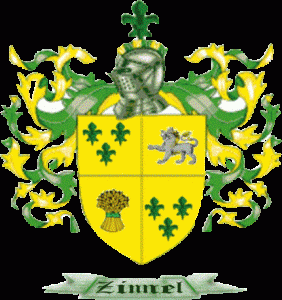
Origin of our Family name is
Prussian.
Prussia was a nation of grandeur, royalty, nobility, and central Germanic governmental rule.
A country of mixed nations both richest of the rich and poorest of the poor.
A vast territory of deep political struggle, that allowed surrounding countries to usurp
their share of the land as the Prussian Empire became no more.
Physically yes it no longer exists but in the people of Prussia, the nation lives
on in deep rooted culture, memories, written script, pictures, and many more traditions that
we proud decendants try to unearth and retain.
A Brief History of Prussia
The area known as Prussia was inhabited in early times by West Slavic tribes, ancestors of the modern Poles,
in the West, and Baltic tribes, closely related to Lithuanians, in the East. Sometime after the seventh century,
the area was invaded and settled by pagan German tribes, later known as Prussians.
In 1226, Prussia was conquered by the Teutonic Knights, a military religious order, who converted the
Prussians to Christianity. The Teutonic Knights were overthrown by the Prussians with help from Poland
and Lithuania in 1454. Prussia was divided into Royal Prussia in the west and Ducal Prussia in the east.
Royal Prussia was incorporated into Poland providing it with a corridor to the Baltic Sea (the "Danzig Corridor").
Ducal Prussia became a Polish territory. At this time, the port city of Danzig (modern day Gdansk) was designated a "free city".
The Protestant Reformation in the early to mid 1500s saw most Prussians convert to Protestantism whereas Poland remained,
and still remains, solidly Roman Catholic. In 1525 Ducal Prussia became a hereditary duchy under Albrecht Hohenzollern,
the last grand master of the Teutonic Knights.
In 1657, after an invasion by the Swedes, Poland surrendered sovereignty over Ducal Prussia which then became
the Kingdom of Prussia headed by the Hohenzollern line. Prussia's power grew and in 1772, under King Friedrich II
(Frederick the Great), consisted of the provinces of Brandenburg, Pomerania, Danzig, West Prussia and East Prussia
(modern day East Germany, northern Poland, and a small portion of the Soviet Union).
About 1865 Wilhelm Otto Zinnel immigrated to the United States and started the Zinnel Family eventually setteling in Nebraska. After this
time, a major event in Prussian history was the defeat of France in the Franco-Prussian War in 1871, making then forming Germany
and making it a world power. It was during this war that, in 1870, Prussian Prime Minister Otto von Bismarck orchestrated the unification of the German states.
The German Empire was established under Prussian leadership with Bismarck as Chancellor. Wilhelm II, the last of the Hohenzollern dynasty,
became Emperor of Germany (Kaiser) in 1888 and ruled until Germany's defeat in World War I.
After defeat in World War I, Germany was forced to give up the Danzig Corridor to Poland and Danzig once again became a free city.
This caused the province of East Prussia to be separated from the rest of Germany. The Rosenberg District was at this time contained in East Prussia.
After Germany's defeat in World War II, West Prussia and East Prussia were divided by Poland and the Soviet Union.

